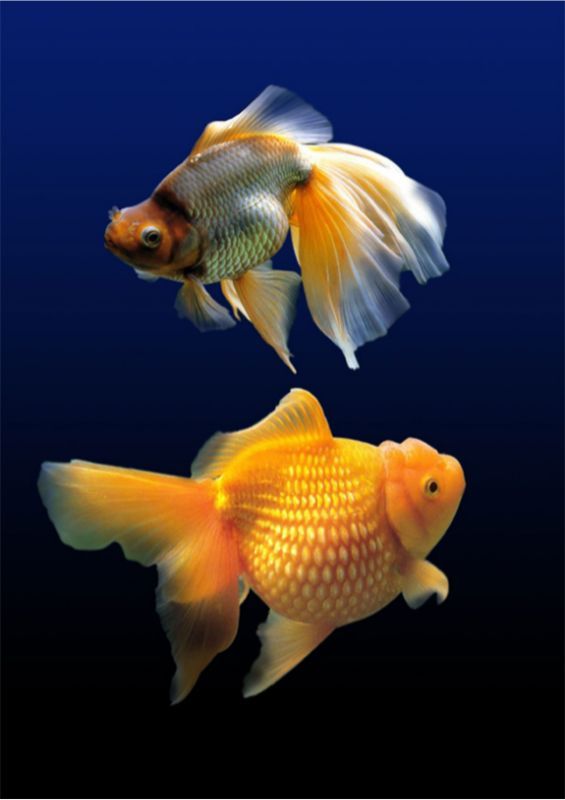You’ve likely heard that you should only feed your fish a small amount of food. Have you also heard that you should only feed them once a day? How about that overfeeding can cause problems for your fish, like bloat?
But, is this true for goldfish? Do goldfish have stomachs? Or, do their digestive systems work differently than other fish?
A goldfish’s digestive system is not the same as most other fish. So, you won’t feed them the same way you feed your other fish either. Keep reading to find out what we mean.
Do Goldfish Have Stomachs?
Goldfish do not have stomachs! How do they digest their food then? Well, their intestines perform much of the work that a stomach does, so they don’t need a stomach.
How Do Goldfish Eat Without A Stomach?
The digestive system of goldfish begins with their mouth. When they open their mouth, it creates a suction that pulls the food in. The water pulled in along with the food goes out through their gills and back into the tank.
They consume their food and break it down with pharyngeal teeth. These teeth live way back in their pharynx. The pharynx lives at the back of the goldfish’s mouth along with the tastebuds.
The teeth are useful for breaking down hard food like insects, plants, worms, and veggies. Like our teeth, their pharyngeal teeth cut the food up into small pieces that are easier to swallow.
Goldfish have two teeth on either side of their pharynx for a total of four teeth.
The Esophagus
The food will then move into the esophagus. A goldfish’s esophagus is very short and is one of the shortest of any species on earth. The esophagus prepares the chewed-up food to enter the digestive tract.
The Intestines
Then, the food enters the intestines where most of the digestion occurs. A goldfish’s intestines consist of two sections: the intestinal bulb and the caudal intestine.
Food enters the intestinal bulb first which is also sometimes referred to as the “midgut”. The intestinal bulb temporarily stores the food that was just consumed. The storage period is very short. Food is only stored long enough for the goldfish’s body to absorb lipids and a few other nutrients.
Then, the food will continue to the caudal intestine. The caudal intestine absorbs the rest of the nutrients from the food, mainly proteins.
The caudal intestine is a bit different than the intestinal bulb. It is longer, similar to a human’s intestine. It cannot store food, and it cannot swell to accommodate a large amount of food.
Once the body has absorbed all the nutrients it needs, the food will come out of the body as waste.
Can You Overfeed A Goldfish?

It’s hard to overfeed your goldfish because they don’t have an actual stomach. Their intestinal bulb can swell up to three times its original size to make room for food.
Plus, a goldfish’s digestive system is incredibly fast despite it being two times the length of its body.
But, because they don’t have a stomach, they can’t digest large amounts of food at once.
Because they don’t have a stomach, goldfish need to eat more food than other fish. But, you shouldn’t feed them a large amount of food at once. Instead, you should feed them a few small meals throughout the day.
Goldfish Produce A Lot Of Waste
A goldfish’s digestive system works much faster than that of other fish. Because of this, you should feed them a few times a day. This also means that they produce a lot more waste.
You’ve probably heard that goldfish are dirty, and this is why. They produce a lot of waste, quickly, so you really have to keep up with cleaning their tanks.
How Long Does It Take For A Goldfish To Digest Food?

Goldfish do not have stomachs. So, their digestive system works much faster than that of other fish. It works so quickly, in fact, that goldfish can digest their food in just 1-6 hours.
Conclusion
Goldfish do not have stomachs, so they can digest their food in only 1-6 hours. That’s fast! Their food travels down their intestinal tract which absorbs nutrients.
Because goldfish have such a fast digestive system, you might not be feeding them enough. Make sure to feed them 2-3 small meals a day to keep them healthy.

